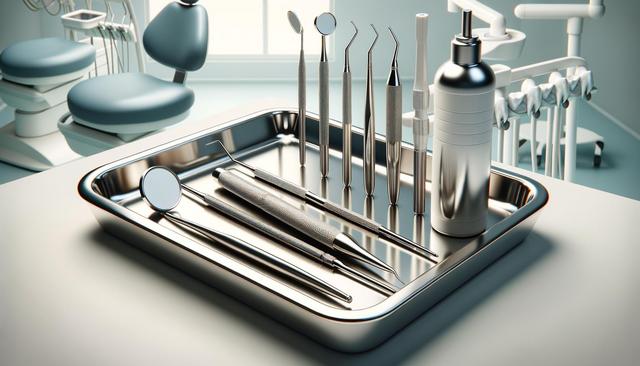Rising Interest in Dental Hygiene as a Career
In recent years, more individuals are considering dental hygiene as a promising career path. One factor driving this trend is the growing demand for oral healthcare services across various communities. As awareness of preventive dental care rises, so too does the need for qualified professionals who can support dental teams in delivering quality care. Dental hygienists play a crucial role in maintaining oral health through cleanings, screenings, and patient education. This increased demand translates into job stability and viable long-term career prospects, making dental hygiene programs more appealing to a wide range of students.
Another reason behind the surge in interest is the relatively short training period compared to other healthcare roles. Many dental hygiene programs can be completed in two to three years, allowing students to enter the workforce more quickly. Combined with competitive salaries and the opportunity to work in various settings—such as private practices, public health clinics, and educational institutions—the profession offers flexibility and growth. These factors contribute to the growing number of individuals pursuing this path.
What to Expect in a Dental Hygiene Program
A dental hygiene program offers a comprehensive approach that blends theoretical knowledge with hands-on experience. Students are introduced to a range of subjects, including anatomy, physiology, nutrition, periodontology, and radiography. These science-based courses lay the foundation for understanding oral health and its connection to overall well-being. In addition to classroom learning, programs typically include extensive practical training where students work directly with patients in supervised clinical environments.
During clinical sessions, students practice essential skills such as:
- Conducting oral health assessments
- Performing dental cleanings and scaling procedures
- Taking and interpreting dental X-rays
- Educating patients on proper oral hygiene techniques
This structured combination of academic and practical components ensures that graduates are well-prepared to meet the demands of real-world dental settings. The emphasis on hands-on learning helps build confidence and competence before entering professional practice.
Skills and Qualities That Support Success
Success as a dental hygienist involves more than just technical ability. Students in dental hygiene programs also develop strong interpersonal and communication skills. These are essential for building trust with patients and effectively delivering health education. A compassionate and detail-oriented approach is especially important when working with individuals who may have dental anxiety or complex needs.
Key qualities that contribute to success in this field include:
- Manual dexterity and hand-eye coordination
- Attention to detail in clinical procedures
- Patience and empathy in patient interactions
- Commitment to continuing education and professional development
Dental hygienists often collaborate closely with dentists, dental assistants, and administrative staff, so being a team player is also highly valuable. Many programs incorporate training that supports these soft skills, helping students become well-rounded professionals.
Career Opportunities and Advancement
Graduating from a dental hygiene program opens the door to numerous career opportunities. While many hygienists work in general dentistry practices, there are also roles in specialized clinics, public health agencies, schools, and corporate settings. Some professionals choose to focus on education, becoming instructors in dental hygiene programs themselves. Others may advance into administrative or research roles within the healthcare sector.
With additional certification or advanced degrees, dental hygienists can expand their scope of practice. Some states or regions allow for more autonomous roles, where hygienists can provide services without direct supervision from a dentist. This can be particularly impactful in underserved communities with limited access to dental care. Continuing education and professional development are key to exploring these advanced paths and staying current with industry standards.
Potential avenues for career growth include:
- Clinical practice in specialty areas (e.g., periodontics, pediatric dentistry)
- Research and public health advocacy
- Dental hygiene education and program development
- Healthcare administration and policy
This variety allows individuals to tailor their careers to their interests and strengths while contributing meaningfully to public health.
Choosing the Right Program for Your Goals
When selecting a dental hygiene program, it’s important to consider factors such as accreditation, location, curriculum structure, and clinical training opportunities. Accredited programs meet established standards that ensure graduates are eligible to take licensing exams and begin practice. Prospective students should also evaluate whether a program’s schedule and format align with their personal and professional needs, especially if balancing other responsibilities.
Researching alumni outcomes, employer partnerships, and faculty experience can provide additional insight into a program’s quality. Visiting campuses, attending information sessions, or speaking with current students and graduates can also be helpful. Ultimately, the right program will support both academic and personal development, preparing students for a rewarding and impactful career.
Many institutions offer support services such as tutoring, career counseling, and mentorship, which can enhance the learning experience. Investing time in finding a program that fits well can lead to greater satisfaction and success throughout one’s educational journey and beyond.
Conclusion: A Career That Makes a Difference
Pursuing a career as a dental hygienist offers the chance to make a meaningful impact on individual and community health. As more people recognize the value of preventive care, the role of dental hygienists continues to grow in importance. For those drawn to healthcare, science, and patient interaction, enrolling in a dental hygiene program can be a fulfilling step toward a stable and rewarding profession. With a blend of practical training and academic foundation, students are equipped to enter a field that offers diversity, flexibility, and the opportunity to help others every day.




Leave a Reply